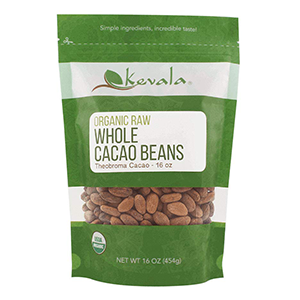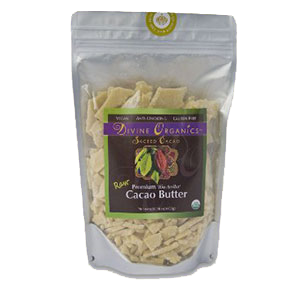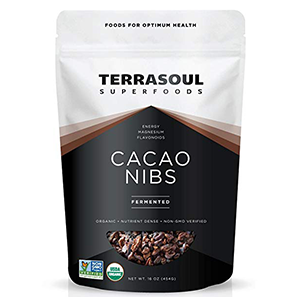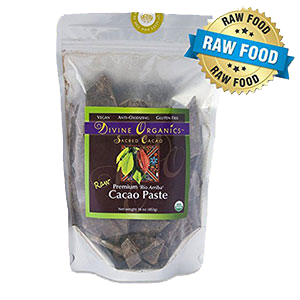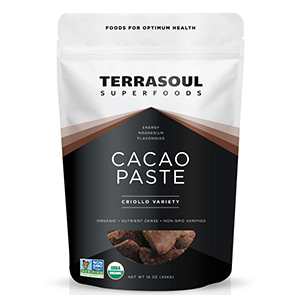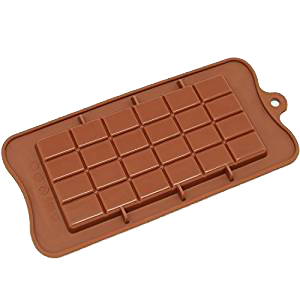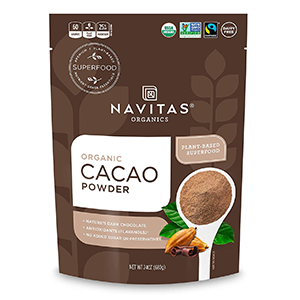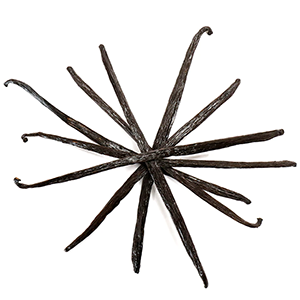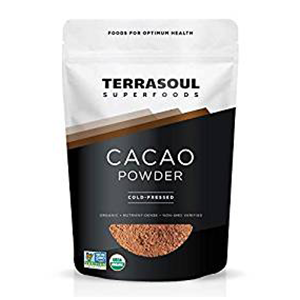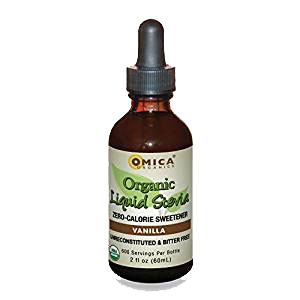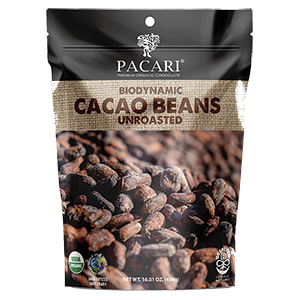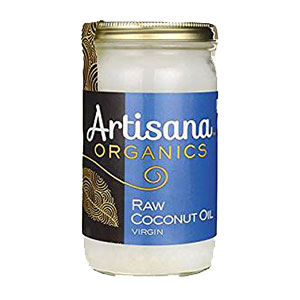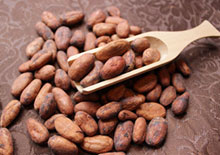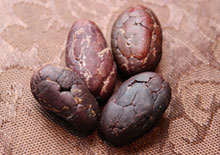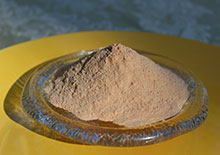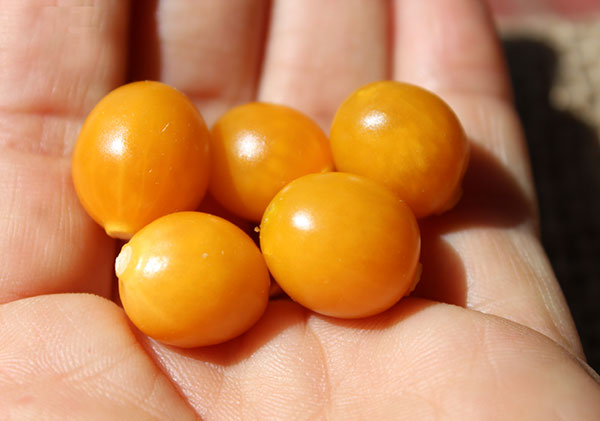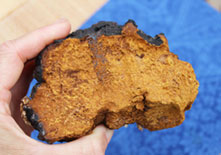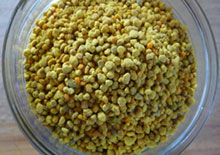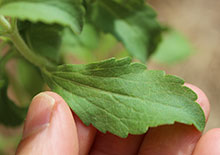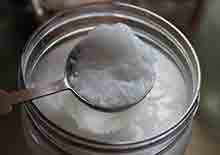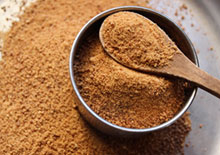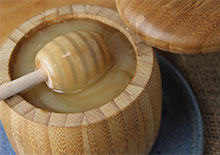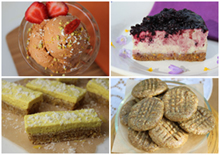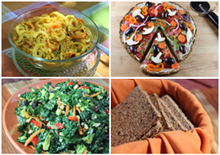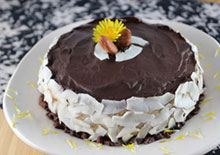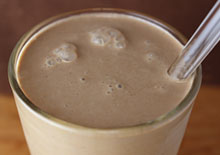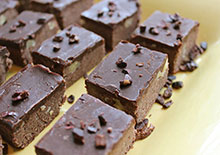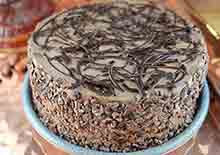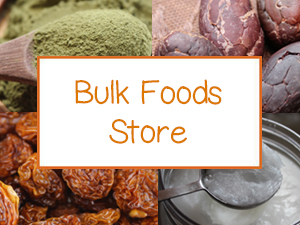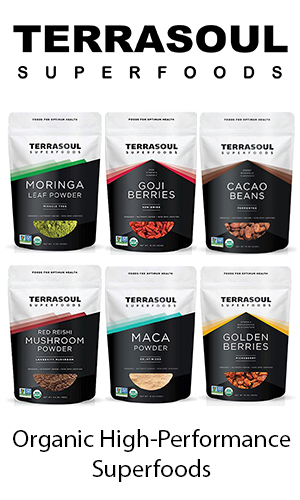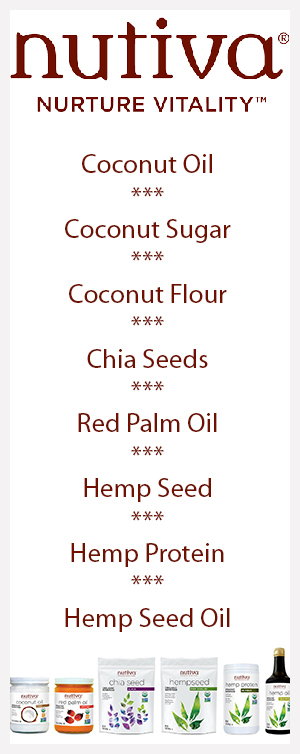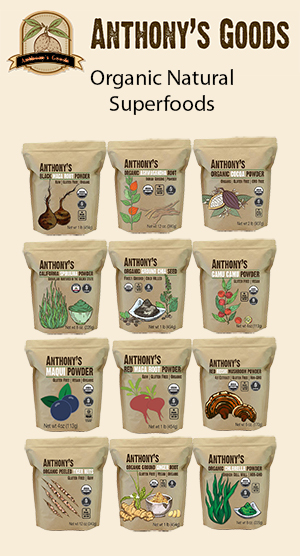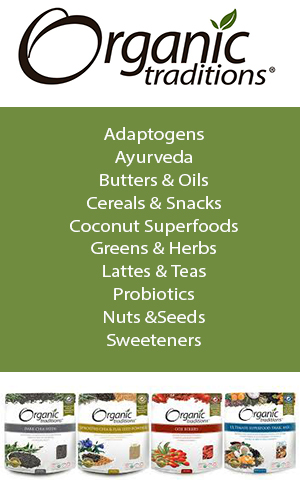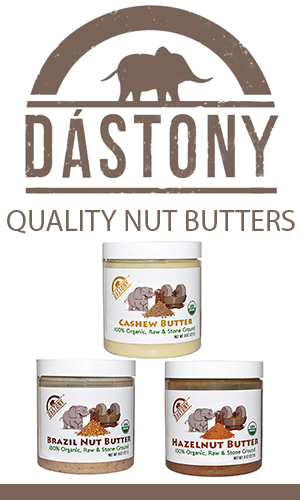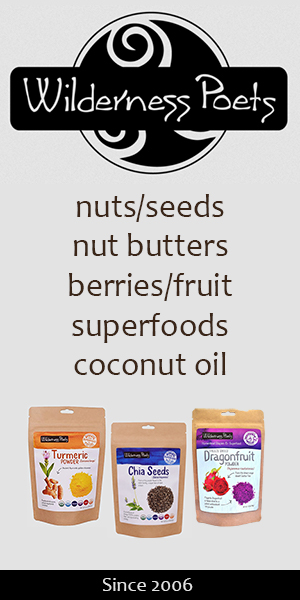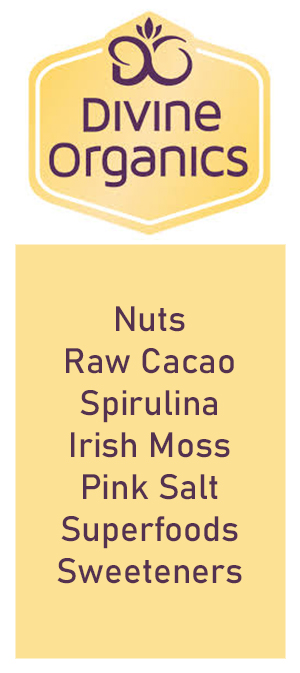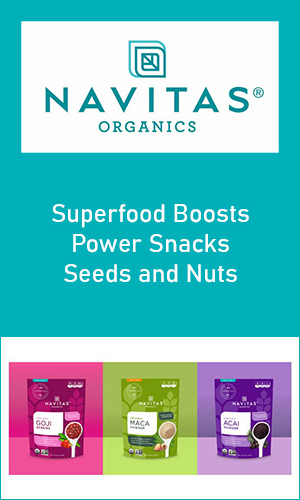Basic Raw Chocolate Recipe, Plus Two Superfood Varieties
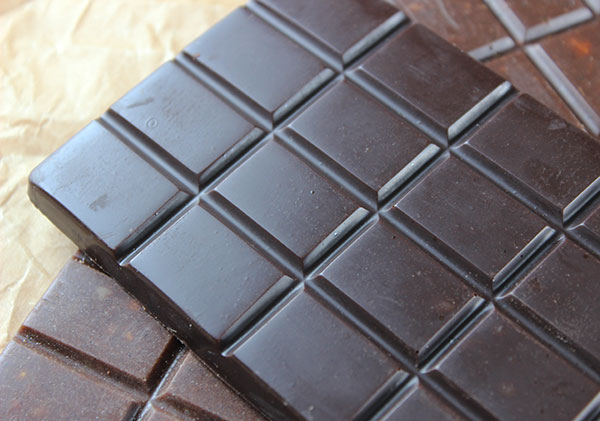
Our basic raw chocolate recipe is created using only five simple ingredients and produces a creamy smooth chocolate bar that nicely embodies the deep rich flavors of pure raw cacao. In addition to this simple dark chocolate bar, we also include two other recipes incorporating different sweeteners, superfoods and types of cacao, utilizing either paste, powder or freshly ground cacao beans.
These recipes are what most people refer to "freezer chocolate", which is a quick and easy way to make homemade chocolate bars without having to temper the cacao ingredient. It is our favorite way to make it and is especially appropriate if you tend to eat it about 15-30 minutes after removing it from the fridge or freezer.
What is Raw Chocolate?
Raw chocolate is chocolate that is made using raw cacao beans that have not been high heat roasted but allowed to naturally sun-dry at temperatures below 118°F (48°C). All chocolate is made from the cacao bean, which is the seed or nut of the cacao fruit that grows on the Theobroma cacao tree species.
Unroasted raw cacao contains more nutritive qualities and provides higher amounts of antioxidants as well as mood elevating neurotransmitters like anandamine, serotonin, and phenylethylamine (PEA).
When making a traditional chocolate bar recipe from scratch, most people use chocolate liquor or paste, which is commercially created by grinding cacao nibs into a either a smooth liquid or a paste that hardens to a solid consistency. The nibs come from the whole peeled cacao bean and include both the cacao solids as well as butter or fat content.
Raw cacao paste is available by a few companies, like Sunfood Superfoods, who specifically ensure processing below 118°F (48°C).
We use raw cacao paste as well as cacao butter in our basic raw chocolate recipe, which is one of the customary ways to make dark chocolate. However, you can also use other forms of cacao, for example straight cacao powder or powder created by grinding whole cacao beans or nibs in a high speed blending device.
Tempered Chocolate Vs. Freezer Chocolate
The process of making a conventional chocolate bar most always involves a technique called "tempering." Essentially this is a method employed to create an end result with a firm texture that snaps, a glossy sheen and one that remains solid at higher temperatures to ensure a stable shelf-life.
The tempering process for creating dark chocolate involves heating the cacao paste between 118°F-120°F (48°C-49°C), then allowing it to cool to 79°F-81°F (26°C-27°C) and finally reheating it to 88-90°F (31°C-32°C) for complete tempering. This helps to change the structure and stabilize the crystal formations in the cacao fat or butter. (Source)
When making these recipes, you will not be using this tempering technique.
A freezer-made raw chocolate recipe tends to melt at room temperatures above 76°F (24°C), depending on the types of ingredients used. (Cacao butter generally remains solid at higher temps compared to coconut oil.) Freezer chocolate is a much easier way to make chocolate and is especially appropriate if you tend to eat it immediately after removing from the freezer.
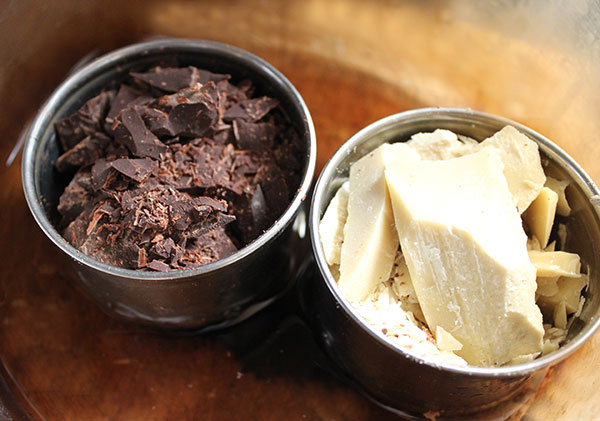
How to Make Raw Chocolate
1) Use a Double Boiler - Both the paste and butter are hard solids that need to be melted at low temperatures to make a raw chocolate recipe. To avoid burning, this is best achieved using a double boiler method by placing a glass, metal or ceramic dish inside of a hot water bath. The water is simmered and then turned on a low flame while the dish of paste and/or butter melts. It is advised to stir the paste every few minutes during the melting process.
2) Avoid Adding Liquid - Because water and oil/fat do not mix, it is important not to place a lid on the pot when melting the chocolate. This will avoid steam from dropping into your paste and butter. The chocolate will not set correctly if water gets into the bar and you will likewise not be able to temper it if you are using such methods.
3) Mix the Ingredients Thoroughly - It is important to dissolve the ingredients thoroughly to adequately incorporate the fats and sweeteners, which will eventually dissolve after a few minutes of mixing with a whisk and/or rubber spatula.
4) Freezer or Tempered Bars - Again, the directions in the recipes below are for making freezer-style chocolate bars. You can also use the tempering method but it is best to use cacao paste rather than powders. Some people also find that granulated sugars, like coconut sugar, as oppose to raw honey work better for making a raw chocolate recipe that snaps with a firm texture.
5) Use a Chocolate Bar Mold - We have found the best mold for
creating the bars are made from flexible silicone and are very easy to pop out
after chilled. The mold size we use in the recipes
below are: 9 x 4.1 x 0.4 inch. and produce a one 3oz chocolate bar. It
is good to place the mold in the freezer so it will solidify the liquid
chocolate faster. It is possible to also use other types of containers
for molding into rectangular bars or other desired shapes.
6) Fresh Vanilla Bean
- In our opinion, all raw chocolate recipes should include vanilla and
there is nothing quite like fresh vanilla bean. It is well worth the
extra expense. We use the inside of the vanilla bean by
slicing it lengthwise and scrapping out the dark paste with the back of a
knife edge. The vanilla pod skins can be later blended into shakes and smoothies.
7) Natural Sweeteners and Superfoods - One of the best things about making your own homemade raw chocolate bars is that you get to use whatever sweeteners you like as oppose to the white cane sugar found in most commercial products. We like to balance higher glycemic sweeteners, like raw honey or coconut sugar, with stevia or lucuma powders. Adding superfoods such as chaga, bee pollen and superfruits like golden berries can really take your chocolate bars to entirely new levels nutritionally speaking.
Raw Chocolate Bar Recipes
1) Basic Raw Chocolate Recipe
2) Chaga Coconut Almond Mint Raw Chocolate Recipe
3) Orange Golden Berry Raw Chocolate Recipe
1) Basic Raw Chocolate Recipe
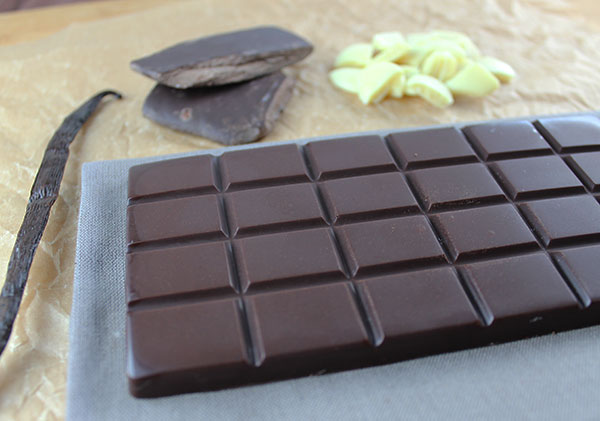
Ingredients:
- 3T melted cacao butter
- 4T melted cacao paste
- 1T raw honey
- 1/4t green stevia powder
- 1/8 of a vanilla bean (inside paste)
- pinch of sea salt
Directions:
- Using a double boiler melt the cacao paste and cacao butter in two small separate dishes in a pot of simmered water on low flame without a lid.
- Stir the cacao paste until thoroughly melted.
- Place the melted cacao paste and butter in a bowl with the scrapped paste of vanilla bean.
- Add the remaining ingredients and stir thoroughly using a whisk and/or rubber spatula.
- Pour the liquid chocolate into a cold chocolate bar mold and freeze for several hours or refrigerate for 4-6 hours.
- Store in fridge or freezer until ready to eat or serve.
2) Chaga Coconut Almond Mint Raw Chocolate Recipe
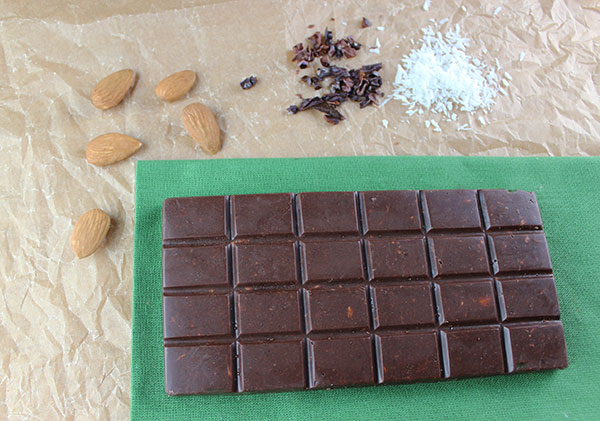
Ingredients:
- 4T cacao butter
- 3T cacao powder
- 1t coconut oil
- 1t cacao nibs
- 1/8t mint oil
- 2t coconut flakes
- 1T chopped almonds
- 1t chaga powder
- 1/8 of a vanilla bean (inside paste)
- 1/4t green stevia powder
- 2T coconut sugar
- 1t raw honey
- pinch of sea salt
Directions:
- Using a double boiler melt the cacao butter and coconut oil in two small separate dishes in a pot of simmered water on low flame without a lid.
- Place the melted cacao butter and coconut oil in a bowl with the scrapped paste of vanilla bean.
- Add the remaining ingredients and stir thoroughly using a whisk and/or rubber spatula.
- Pour the mix into a cold chocolate bar mold, spreading out evenly if necessary and freeze for several hours or refrigerate for 4-6 hours.
- Store in fridge or freezer until ready to eat or serve.
3) Orange Golden Berry Raw Chocolate Recipe
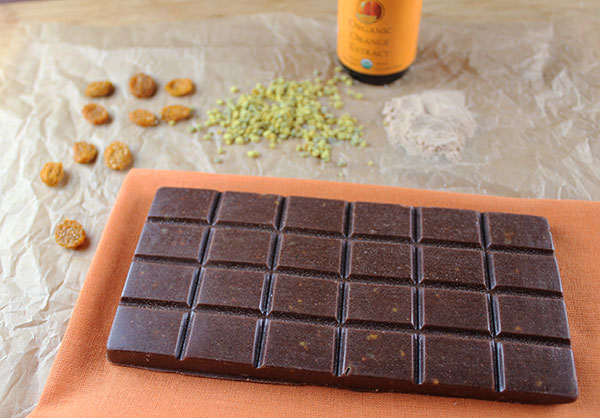
Ingredients:
- 4T cacao butter
- 1T cacao powder
- 2T ground cacao beans
- 1T raw honey
- 1T lucuma powder
- 1/4t green stevia powder
- 1/8 of a vanilla bean (inside paste)
- 2t bee pollen
- 1T golden berries chopped
- 1t sea buckthorn powder
- 1/2t orange oil flavor
- pinch of sea salt
Directions:
- Grind whole cacao beans in a coffee grinder, NutriBullet or high speed blender to create a fine powder, set aside.
- Using a double boiler melt the cacao butter a small dish in a pot of simmered water on low flame without a lid.
- Place the melted cacao butter in a bowl with the scrapped paste of vanilla bean.
- Add the remaining ingredients and stir thoroughly using a whisk and/or rubber spatula.
- Pour the mix into a cold chocolate bar mold, spreading out evenly if necessary and freeze for several hours or refrigerate for 4-6 hours.
- Store in fridge or freezer until ready to eat or serve.
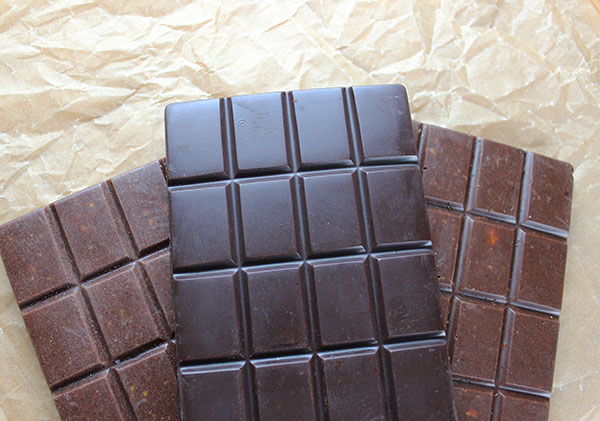
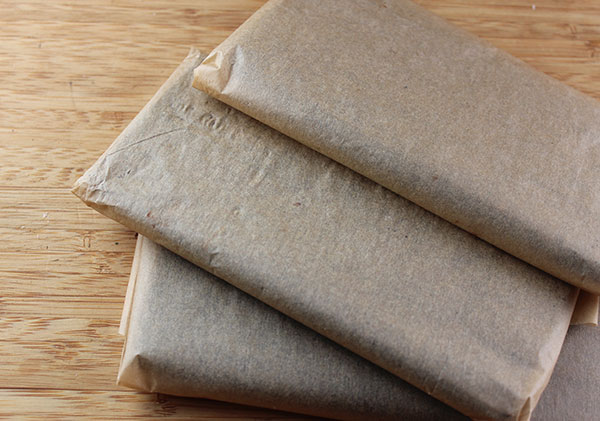
You can individually wrap your chocolate bars in wax paper and keep them in a sealed container for storage in the fridge or freezer.
Visit our raw vegan recipes page for more raw desserts and cacao recipes in the links below.
Shop Related Products (About Affiliates & Amazon Associate Paid Links)
Affiliate Disclaimer: This section contains affiliate product links. If you make a purchase through our recommended links, we receive a small commission at no additional cost to you. Thanks for the support.
